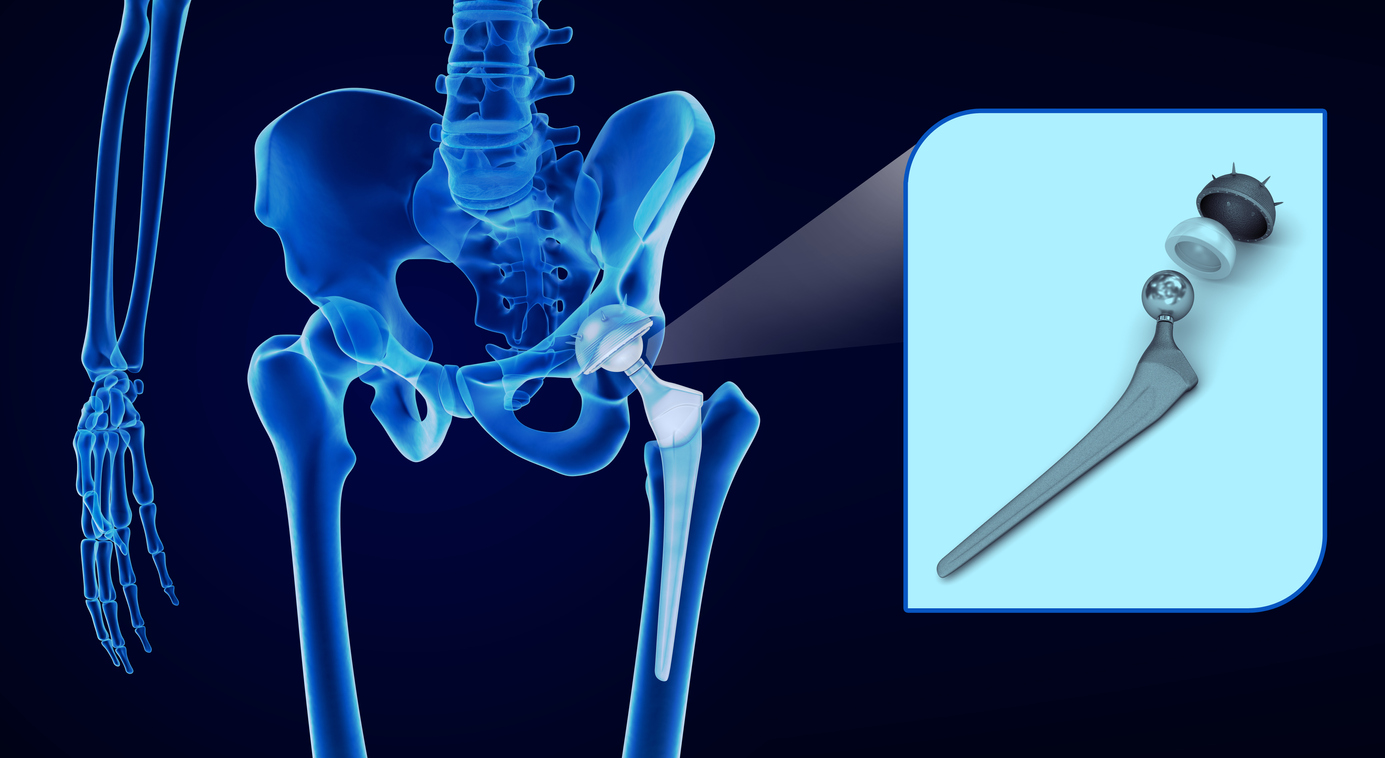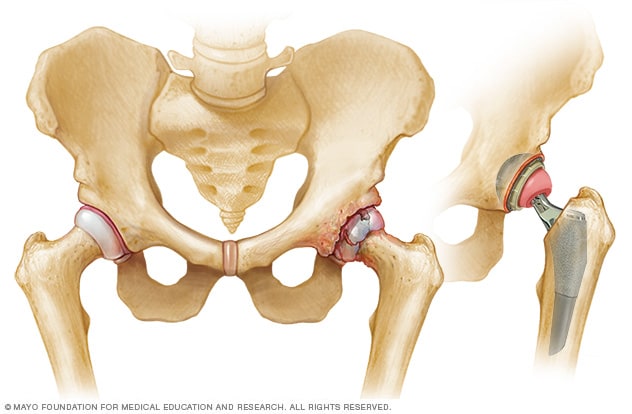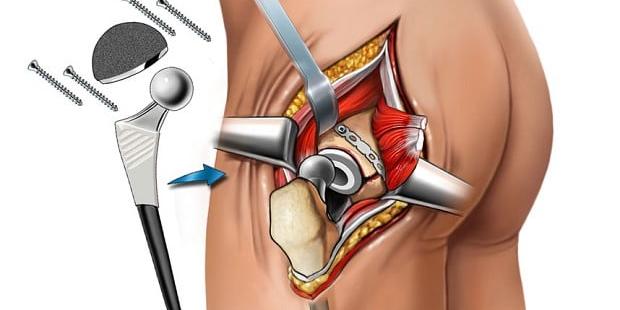Introduction:
Hip replacement surgery: Hip Replacement Surgery, also known as total hip arthroplasty, is a medical procedure designed to alleviate pain, restore mobility, and enhance the quality of life for individuals suffering from severe hip joint conditions. It is a commonly performed surgery that has transformed the lives of millions of people worldwide. In this blog, we will delve into the details of hip replacement surgery, its benefits, the procedure itself, recovery process, and the impact it can have on an individual’s overall well-being.
Understanding Hip Joint Degeneration:
The hip joint plays a crucial role in our ability to walk, run, sit, and perform various activities. However, over time, the joint can deteriorate due to factors such as aging, osteoarthritis, rheumatoid arthritis, injury, or other medical conditions. This degeneration leads to persistent pain, stiffness, limited mobility, and a significant decline in the overall quality of life. Hip replacement surgery presents a viable solution for individuals who have exhausted non-surgical treatment options and are seeking long-term relief.
Benefits of Hip Replacement Surgery:
- Pain Relief: The primary objective of hip replacement surgery is to alleviate chronic pain caused by hip joint degeneration. By replacing the damaged joint surfaces with artificial implants, the surgery eliminates the source of pain and significantly improves the patient’s comfort.
- Improved Mobility: Restricted mobility due to a deteriorated hip joint can greatly impact daily activities and independence. Hip replacement surgery helps restore joint function, allowing patients to move with ease, walk longer distances, climb stairs, and engage in physical activities they were unable to perform before.
- Enhanced Quality of Life: Chronic pain and limited mobility can take a toll on an individual’s mental and emotional well-being. By relieving pain and restoring mobility, hip replacement surgery can enhance overall quality of life, leading to increased independence, improved mood, and better social interactions.
Also read: How To Find The Best Spine Doctor In Gwalior

The Hip Replacement Procedure:
- Preoperative Evaluation: Before the surgery, the patient undergoes a thorough medical examination, including imaging tests like X-rays and MRIs, to assess the condition of the hip joint. The surgeon evaluates the patient’s overall health and discusses the procedure, risks, and potential outcomes.
- Anesthesia: Hip replacement surgery is performed under general anesthesia or regional anesthesia, depending on the patient’s health and the surgeon’s preference. The anesthesia ensures that the patient remains comfortable and pain-free during the procedure.
- Surgery: The surgeon makes an incision over the hip joint, carefully removes the damaged bone and cartilage, and replaces it with an artificial hip implant. The implant consists of a metal or ceramic ball that replaces the femoral head and a socket made of plastic, metal, or ceramic that replaces the acetabulum.
- Postoperative Care and Recovery: Following the surgery, the patient is monitored in a recovery room before being transferred to a hospital room. Physical therapy and pain management techniques are employed to aid in the recovery process. Rehabilitation exercises gradually restore strength and range of motion, enabling the patient to regain mobility.
Also Read: The Best Alternative Therapies to Treat Back Pain and Neck Pain

Recovering from Hip Replacement Surgery:
Recovery from hip replacement surgery typically involves a period of hospital stay and subsequent rehabilitation. The length of the hospital stay may vary, but patients are often encouraged to start moving and bearing weight on the new hip soon after the surgery, with the assistance of crutches or a walker. Physical therapy plays a vital role in regaining strength, flexibility, and proper gait. The rehabilitation process may continue for several weeks or months, depending on the individual’s progress.
Also read: How an Orthopedic Specialist Treats Knee Pain.
During the recovery phase, it is important to follow the surgeon’s instructions, adhere to prescribed medications, and attend all scheduled follow-up appointments. A gradual return to daily activities, including light exercises and regular walking, is recommended to prevent complications and promote optimal healing.

Life After Hip Replacement Surgery:
Hip replacement surgery can have a transformative impact on an individual’s life. Once fully recovered, many patients experience a significant reduction in pain, improved mobility, and the ability to engage in physical activities they were unable to participate in before. From walking comfortably to pursuing hobbies, playing sports, and enjoying an active lifestyle, the benefits of hip replacement surgery extend beyond the physical realm.

Conclusion:
Hip replacement surgery is a highly effective procedure that offers relief to individuals suffering from debilitating hip joint conditions. By eliminating pain, restoring mobility, and enhancing overall quality of life, it has become a life-changing solution for many. If you are experiencing persistent hip pain or limited mobility, consulting with a qualified orthopedic surgeon can help determine whether hip replacement surgery is a suitable option for you. Remember, the decision should be made in collaboration with your healthcare provider, considering your specific condition and overall health.
Hip Replacement Surgery In Gwalior:
The KLM Group Hospital, led by Chief Surgeon Dr. Vipin Garg, is renowned for providing exceptional healthcare services, particularly specializing in hip replacement surgery in Gwalior. With a commitment to delivering the highest quality of care, the hospital boasts state-of-the-art facilities, a skilled medical team, and a patient-centered approach. Dr. Vipin Garg, with expertise in hip replacement surgery, ensures that patients receive personalized treatment plans and comprehensive support throughout their surgical journey. If you’re seeking the best hip replacement surgery in Gwalior, the KLM Group Hospital, under the guidance of Dr. Di Vipin Garg, is dedicated to delivering excellent outcomes and improving patients’ quality of life.
Address: 12, Saraswati Nagar, University Road, Near Silver Estate, Thatipur, Gwalior 474006 Mob: 7804826825 Ph: 0751-4000721 Website: www.klmgroup.org Email: info@klmgroup.org / klmspineclinic.in@gmail.com this company is powered by Argusdna

